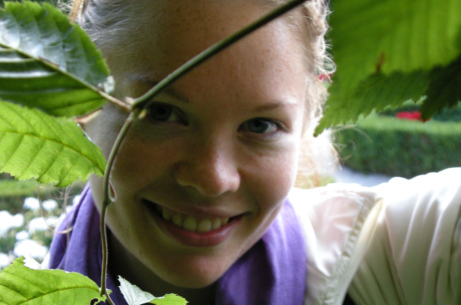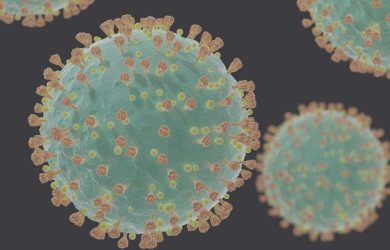
Danelle Van Zyl-Hermann is studying the history of emotions in South Africa.
Danelle van Zyl-Hermann [2010] is fascinated by the history of emotion and its links with identity politics. Growing up in South Africa with an unusual family background, she always felt both part of her community and an outsider, which makes her a good observer and interrogator of how certain group identities have been established there.
Danelle’s father is a church minister and worked as a missionary amongst black South Africans during the heyday of apartheid in the 1970s. “He and my mother lived among a rural community and spoke fluent isiXhosa. My parents worked to empower people through the Gospel,” she says.
Later, her father couldn’t continue the work due to illness, and the family moved to the Cape Town area where she was born. There he established a community Bible school in the black townships around Cape Town where he teaches every evening. Because her family had lived in a different community, she grew up with openness and empathy towards “other” people. “It was quite an academic family since my father is a theologian and my mother is a teacher,” she says.
Danelle says she always knew she wanted to study history. “There was always a spark of excitement when I studied history and through that I became interested in politics. My interest was in the human side of things.” As she had started school one year early, she was fairly young when she began a BA in International Studies at the University of Stellenbosch in 2003, but says it didn’t phase her. She majored in five subjects, including history where she focused on South African history. In her third year she became interested in the history of mentalities which focuses on the historical consciousness that informs how people act – a form of collective historical psychology.
After completing an honours programme in history in 2006, she had the opportunity to take part in a research semester at the University of Tübingen in Germany in 2007. Danelle, whose husband is German, says she had developed a fascination for Germany after travelling there when she was 16 as an exchange student. “That was my first time travelling alone outside South Africa,” she says. “I stayed with a host family and I loved it. I come from a country that does not have a long written history, so the first time I entered a small Gothic church in Germany I felt as if I had entered history.”
After she completed her honours degree, Danelle got a scholarship to do a masters in the history of European expansion and globalisation at Leiden University in the Netherlands. The scholarship was for students who originated from countries which were previously colonies of the Netherlands. She was the only person from Africa.
Because of her scholarship, her masters thesis was on the colonial history of South Africa in the 18thcentury, in particular the identity and mentality of European settlers in South Africa. She studied the letters of settlers to their families in the Netherlands at the end of the 18thcentury and says she was very struck by the emotion in the letters and how settlers expressed their identities. “I kind of stumbled on the history of emotions,” she says.
“These were people who were second or third generation settlers. I wanted to know if they still identified with a Dutch identity, but it was not clear cut. There was a strong feeling of them being bonded to people in the Netherlands they had hardly seen, but there was also a strong identification with the Cape,” she says. “There was antagonism towards the British and an emotional bond to the Netherlands, but it was very much about people missing each other and being worried about each other.”
An article on this research has just been published in the journal “Itinerario: International journal on the history of European expansion and global interaction” Vol 35 Issue 2.
Danelle believes the history of the emotions is underexplored in South Africa and has spoken at universities there to introduce the subject to students. “People prefer economic histories, for instance, but it is crucial to understand how ordinary people felt,” she says. For her PhD at Cambridge she has chosen something more contemporary and is studying the transition period from apartheid to democracy. She is interested in studying Afrikaner identity, particularly working class Afrikaners.
She says the transition and its impact on Afrikaners is usually portrayed as if they were one homogenous group, but the working class had already been confronted by the transformation from apartheid in the 1980s. The desegregation of the mines, for instance, happened 10 years before 1994, the official end of apartheid. “It was a traumatic time for people with a racialised mentality,” she says. Her aim in part is to problematise the issue of what an Afrikaner is supposed to be. She herself is an Afrikaner, which allows her to start her research from a position of being able to understand their culture and language. “I am what they call a ‘connected critic’ – someone who is part of the core group and can tap into their subjectivities, but can also observe critically from the periphery – which I think makes for a really rich study,” she states.












